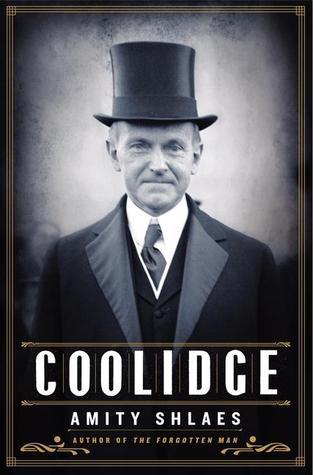 Coolidge
Coolidge
Harper
2/12/2013
Audiobook
456 pages

Calvin Coolidge, who served as president from 1923 to 1929, never rated highly in polls. The shy Vermonter, nicknamed "Silent Cal," has long been dismissed as quiet and passive. History has remembered the decade in which he served as a frivolous, extravagant period predating the Great Depression. Now Amity Shlaes, the author known for her riveting, unexpected portrait of the 1930s, provides a similarly fresh look at the 1920s and its elusive president. Shlaes shows that the mid-1920s was, in fact, a triumphant period that established our modern way of life: the nation electrified, Americans drove their first cars, and the federal deficit was replaced with a surplus. Coolidge is an eye-opening biography of the little-known president behind that era of remarkable growth and national optimism.
I had not read anything about President Coolidge before, and honestly didn’t know much about him at all. I found in Coolidge a no nonsense rural man who I related to on many levels. He was a man of great ambition, though he was portrayed as being a reluctant vice presidential candidate, but I think he was only disappointing because he didn’t get the Presidential nod. Warren Harding was a fascinating character, and seems to have been a direct opposite to Coolidge in social circles. In a day when every politician seems to be independently wealthy, it’s nice to see Coolidge struggle with and conquer his own personal finances, the White House’s domestic budget, and the national budget. I appreciate the taxation policies that Coolidge enacted and was glad to find they had the desired effect, though I’m not sure you can take away too much from that scenario since the tax rates he inherited were so high to begin with.
Taking over for Harding, continuing his programs, and not seeking a second full term, are signs of the true man that is Collidge. In the end, Coolidge was a decent and fair man who did the best that he could. His frankness in dealing with problems is something that politicians today could learn from, though I’m not sure the people of today would respect them for it.
